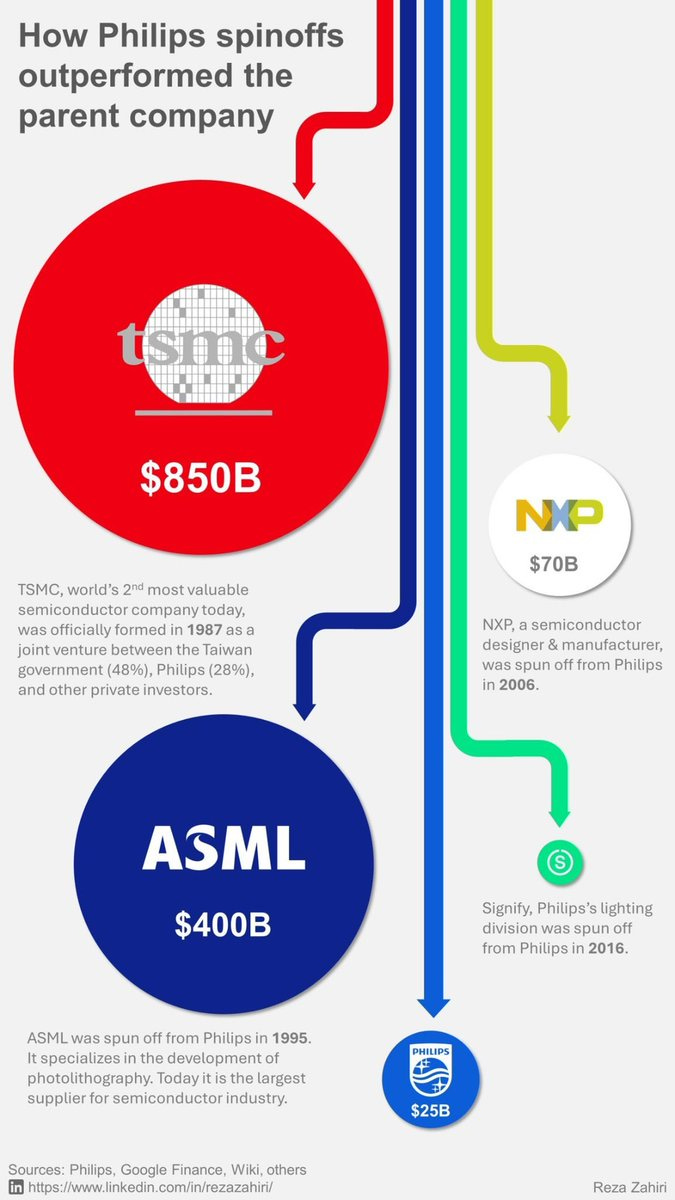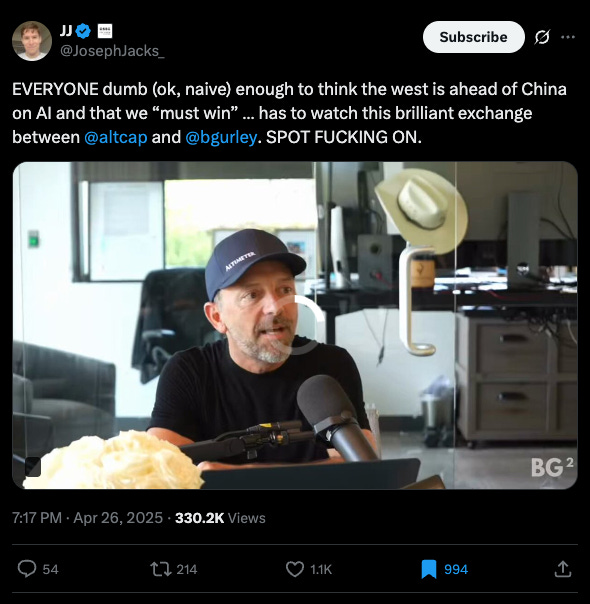Which Game are we Playing with Europe?
Sometimes you have friends who compare themselves with others regarding their progress.
Career, family, a bigger house, wealth, etc.
A good friend would say:
“Don’t compare. It’s not a race, and there is no finish line.
The only race you have is with yourself, to be better than yesterday.”
The same applies to our Tech Policies in Europe.
Some examples
Interview Mbarki “Amsterdam can really become the technology capital of Europe' by Mbarki” in the parool.
'Amsterdam can really become the technology capital of Europe' by Mbarki
Or
Or
There is no race to win between Europe vs. the US, or Europe vs. China.
Or London vs. Paris as the leading tech ecosystem.
Or even “winning the AI race.”
Listen carefully to Jensen explaining how to win the AI race.
This is at the prestigious Hill and Valley Forum 2025, held at the U.S. Capitol.
They are playing the wrong game.
It’s the wrong mental model to believe there is something to “win” or a finish line to reach, comparing results and declaring a winner.
This flawed strategy arises from finite games.
But in reality, we play infinite games.
Finite games are played to win.
Finite games are like sports: fixed rules, clear boundaries, defined timelines, seeking power to control others, often taken very seriously.
Infinite games, however, are played to keep the game going.
Examples include the stock market, culture movements, political movements, building nations, and even life itself.
Infinite games have:
Mutable rules to keep players engaged.
Boundaries that can shift.
A future-oriented perspective.
Freedom to change the rules, roles, or boundaries, provided other players remain engaged.
No possibility of a final victory or a definitive finish line.
The objective is simply to keep playing.
→ More about Finite and infinite games: https://en.wikipedia.org/wiki/Finite_and_Infinite_Games
European policymakers and probably also the traditional media in particular need to unlearn this outdated mental model of winning vs. losing, or thinking we are playing finite games.
It results in bad policy and does not build strong tech ecosystems.
It’s shortsighted and foolish to think there’s a finish line.
Let’s reframe it:
It’s not about winning or losing, or Europe vs. the US.
It’s about how we adapt, shift boundaries, and remain engaging so that we, and others, want to keep playing.
If you don’t, you play the finite game and you lose people to stay engaged and they stop playing.
Building tech ecosystems is a long-term, continuously evolving project. The rules are dynamic, and boundaries shift constantly.
Example Philips spinoffs outperformed the parent company:
Or the Silicon Valley butterfly moment:
Or foster Founder Factories, from nr of 2nd generation startups coming out of:…
The key insight:
It’s not about becoming the number-one economy, the top tech ecosystem city or region, or growing into a large, century-old company resistant to change to protect current business models and market positions.
Instead, the lesson is about creating an ever-evolving innovative flywheel game that continues to generate ripple effects throughout the tech ecosystem long after its inception and keeping other players engaged and eager to participate.
The goal is to remain in the game, stay competitive, keep it engaging and, above all, keep playing.
This is the game we should play.
Further Reading:
These graphs are crucial for understanding how innovation works, especially in Europe. Or the lack of.
1. Philips spinoffs (including joint ventures like TSMC) outperformed the parent company.
2. Companies come and go, but true innovation comes from startups, spinoffs, and
EVERYONE dumb (ok, naive) enough to think the west is ahead of China on AI and that we “must win” … has to watch this brilliant exchange between @altcap and @bgurley. SPOT FUCKING ON.












